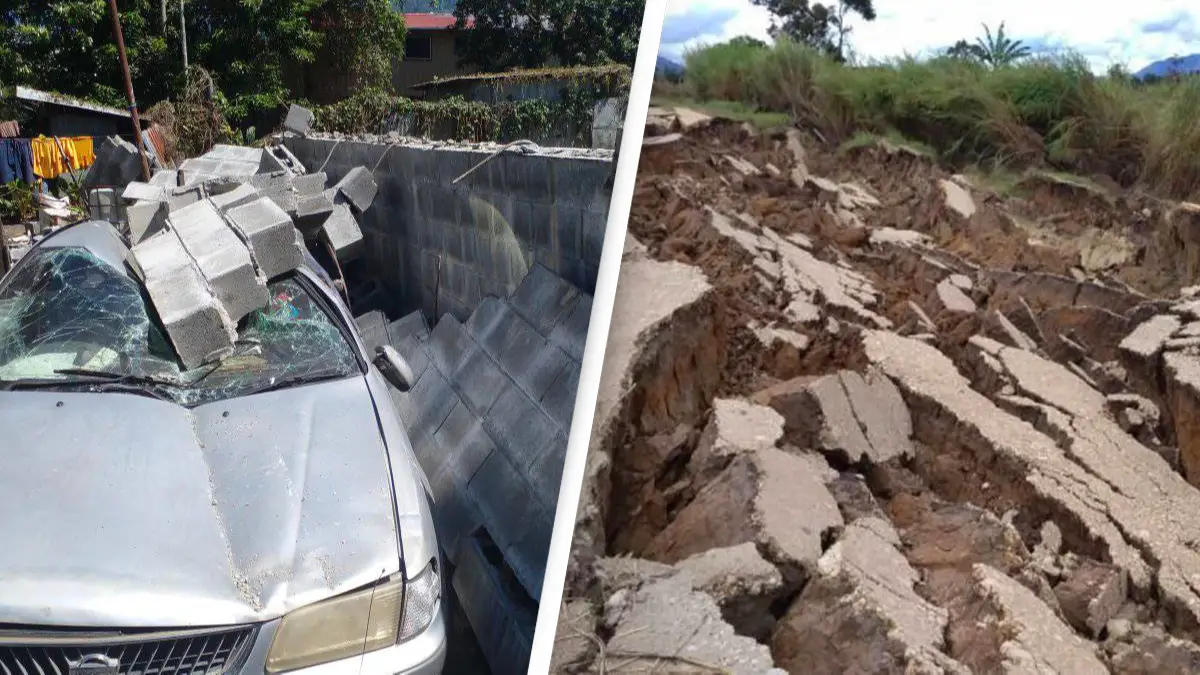
Papua New Guinea has been hit by a massive earthquake measuring 7.6 on the Richter scale.
The earthquake was felt all across the country, though it was concentrated on a remote part of the island nation.
Authorities have said that at least three people have died, while many more have been injured and parts of the country have suffered significant damage.
The three people killed in the earthquake died after the quake caused a landslide which hit the gold mining town of Wau.
Advert
Charley Masange, disaster director of Papua New Guinea's Morobe province where the earthquake struck, suggested that the nation's dispersed population and lack of large buildings near the quake's epicentre helped avoid an even worse disaster.
Given the strength of the massive quake if it hit a more densely populated spot then it could have killed many more people.
It's also possible that the initial scale of the damage is not yet known as communications are thought to have been affected with some phone masts likely among the damage.
Renagi Ravu, a geologist living 41 miles from the earthquake's epicentre, said people nearby were feeling rattled at the disruption.
He told the AP news agency: "It's a common thing that earthquakes are felt here, but it usually doesn't last as long and is not as violent as this one. It was quite intense.
"They are starting to clean up their houses and the streets."
Seismologist Felix Taranu said it was too early to know the full extent of the damage from an earthquake of such a massive magnitude, though he noted that it 'most likely caused considerable damage'.
Locals took to social media to show the impact of the quake, with cracked roads and damaged cars one of the consistent features among the images of the destruction.
One of the reasons Papua New Guinea is so susceptible to earthquakes is because it is located near the 'Ring of Fire', a hole in the ocean floor in the Pacific where tectonic plates shift against each other.
The geographical feature makes people living in the surrounding area more vulnerable to earthquakes, volcanic eruptions and tsunamis.
Fortunately for Papua New Guinea in the wake of this 7.6 magnitude earthquake there is no tsunami expected to strike in the aftermath, which will be of some small comfort to those already affected by the quake.
If you have a story you want to tell, send it to UNILAD via [email protected]
Topics: World News, News